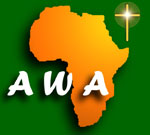Beginnings
The country of Cote d'Ivoire (formerly known as Ivory
Coast) opened to Free Will Baptists in 1958. For the
past 50 years, numerous families and single missionaries
have dedicated themselves to evangelize, disciple, and
plant churches among the Agni, Abron\Koulango, and Lobi
people groups. Today there are over 30 FWB churches
among the Abron\Koulango and Lobi, including 5
additional churches in the mega-city of Abidjan, one in
Bouake, and 32+ men who have been trained as pastors in
our Bible Institute. Despite faithful efforts over many
years, churches were not planted among the Agni because
of their overall resistance to the gospel, although Agni
individuals were saved.
The first FWB missionaries to arrive in Cote d'Ivoire
settled in Goumere and Koun to begin ministry among the
Abron\Koulango and Agni. In 1962, FWB's opened and
staffed a clinic in the northeastern corner of Cote
d'Ivoire in the village of Doropo. The clinic provided
healthcare and shared the gospel daily in its remote and
poor area, spearheading the outreach among the Lobi.
Most missionaries developed preaching points, too, in
surrounding villages. In 1998, the clinic became an NGO
run by Ivorian Christians. Further south among the
Koulango and Agni, evangelization and preaching in
villages and towns were the primary means of outreach.
Diverse Ministries
As African men answered the call to preach and began
pasturing churches, it became evident that they needed
further training to flourish in their new roles. A third attempt to establish a Bible
Institute was successful in 1985, assisted by a Theological Training by Extension program (TTE).. The Institute was
transferred to national leadership in 2005.
Our missionaries participated in other important
ministry in Cote d'Ivoire as well. FWB's built and
staffed a high school boy's dorm at ICA (International
Christian Academy), a boarding school in Bouake that
provided education for MK's all over West Africa. At
various points, our dorm parents, teachers, builders,
and a business administrator contributed to ICA's
success until the civil war closed the school
indefinitely in 2004.
Missionaries also opened reading rooms for high school
students, served in a Christian publishing house
providing crucial materials in French, built missionary
housing, churches, and parsonages, and partnered with
African pastors to plant churches in new cities. In
early years, significant efforts were made to translate
Scripture and songs into the tribal languages. Others
invested time preparing Sunday School and Bible youth
competition materials, or helped Ivorians prepare
Christian studies for Adult Learning by Extension.
Civil War
When civil war broke out in 2002, all FWB missionaries
evacuated to the USA for about a year. A handful
returned to continue ministry in Cote d'Ivoire, and in
2007, 3 missionary units remain on the field, with an
additional couple partially on the field, and partially
in ministry elsewhere.
50th Year Celebration
We can look back with gratitude and glory to God for
what He has accomplished through FWB missionaries and
Ivorians who said "yes" to His call in the past. In
April 2008, a celebration is planned to commemorate past
victories.
Future Opportunities
We should choose to concentrate, though, on the work
still to be done in Cote d'Ivoire. Although the south
part of the country is heavily Christian, the north is
not so. Pray with the Andersons that more missionaries
will come. With over 60 people groups in the country and
an enormous Muslim population, there are people groups
and areas with no gospel witness. The Ivorian church
would like to partner with missionaries to establish
churches in new regions and among new groups, and longs
for help in developing Christian music. A team dedicated
to reach Muslims is desired. More help is needed in CHE,
and there is a dearth of books and materials for
discipleship and Sunday School which convey FWB
doctrine. Opportunities abound to teach English
informally in high school and colleges, as well.

